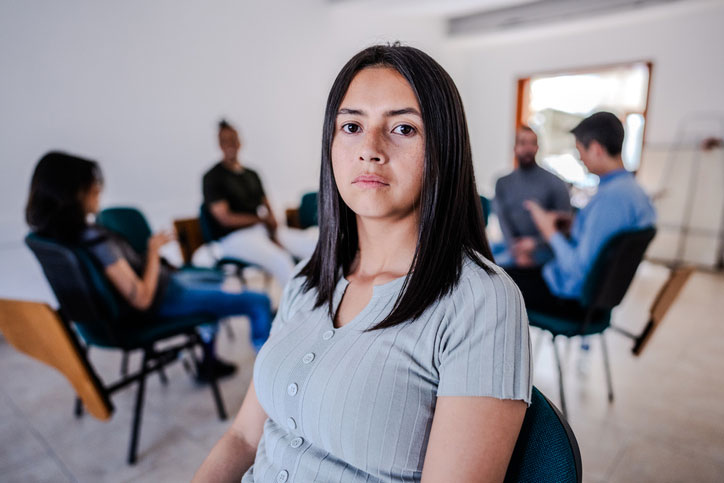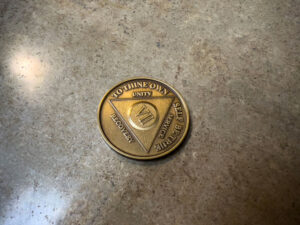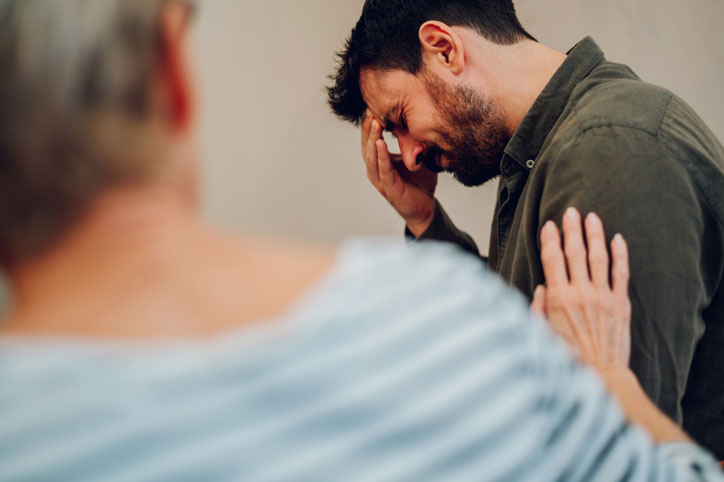Written by Dr. Emily R. Thornton, PhD, LCADC , Last Updated: November 5, 2025
A certified peer support specialist uses their own recovery experience to help others overcome substance use disorders. They provide emotional support, share recovery strategies, and connect clients to resources. Certification requires 40-100 hours of training, 200-500 hours of supervised practice, passing an exam, and typically two years of sustained recovery.
Table of Contents

One thing you'll find as a thread in almost every single story of addiction recovery is this: at some point, often after years of failure, a patient will meet someone who genuinely gets them. When that counselor talks, they are speaking to the patient's soul. They know precisely what the patient is going through. And they can help make it stop.
Substance abuse recovery is a lonely journey, and not many people make it out alone.
That knowledge and expertise in treatment are common. Every addiction counselor gets the same training and meets the same standards. So the difference isn't in what you know. It's about where you've been.
It's really difficult for substance use disorder counselors who have not been touched by addiction themselves to connect with their patients' struggles from a place of true knowing. But it's something that peer counselors automatically bring to the table.
What Is a Peer Support Specialist?

The peer support specialist role represents a unique way to build on the success of addiction recovery programs. The role was created to put people who have achieved sobriety and who are most familiar with the treatment process and what it takes to succeed, together with patients who are currently struggling.
If you've gone through crisis after crisis yourself and finally come through to the other side, you have a visceral sense of connection that no other kind of SUD counselor can match.
If you still feel the pull toward your drug of choice every day but fight and win against it, you understand the resolve that is needed to help patients beat addiction.
When you have had to go through the difficulty of learning how and when to access the support and resources needed to help, you understand the frustration that people feel coming at it for the first or fiftieth time.
The Most Famous Example of Peer Support in Addiction Therapy
 Maybe one of the earliest and most successful examples of peer support in a formal program of addiction support and recovery comes from the program that almost everyone has heard of: Alcoholics Anonymous.
Maybe one of the earliest and most successful examples of peer support in a formal program of addiction support and recovery comes from the program that almost everyone has heard of: Alcoholics Anonymous.
AA traces its roots back to the 1930s, when chance meetings between individuals struggling with alcohol abuse problems in a Christian group led to the formation of a mutual support group that quickly spread across the country and around the world.
While the 12 steps are well-known and often credited for the success of the program in leading people to sobriety, the more effective contribution to the process may be in the idea of sponsorship: the practice of group members who have already progressed through the steps mentoring new members in their own journey.
Sponsors aren't official, receive no payment, and typically receive no training. But the simple ability to pick up a phone in the middle of the night while staring at an unopened bottle has been an invaluable support for millions of recovered alcoholics.
With the added training and integration of peer support specialists into the larger world of addiction treatment, they can be even more effective and cover even more kinds of substance use disorders.
With formal approval from state health agencies to offer that knowledge and support to other patients, peer support specialists bring their hard-won expertise and skill to the fight against substance use disorders.
What Does a Peer Support Specialist Do?

Just recovering from addiction and being helpful really isn't a job description. Because these are licensed roles in almost every state, they come with a comprehensive list of expected skills and limitations on the types of counseling tasks they can perform.
While those can vary from state to state, the Substance Abuse and Mental Health Services Administration (SAMHSA) has nailed down a list of 12 core competencies that peer recovery counselors are expected to demonstrate:
- Engage peers in collaborative and caring relationships
- Provide support
- Share lived experiences of recovery
- Personalize peer support
- Support recovery planning
- Link to resources, services, and supports
- Provide information about skills related to health, wellness, and recovery
- Help peers manage crises
- Value communication
- Support collaboration and teamwork
- Promote leadership and advocacy
- Promote growth and development
The main role of the peer support specialist is to be a beacon of hope and a shoulder to lean on.
One thing peer recovery workers don't do, and know they cannot do, is to try to do the complex parts for their patients. More than anyone, they understand that empowerment is crucial to the recovery process. The most critical part can be learning how to maintain necessary boundaries while still offering the utmost compassion.
Daily Duties in Peer Support Positions

When it gets down to the day-to-day activities you fulfill in peer support positions, it's a lot harder to draw clean lines around job descriptions. What it almost always comes down to is that you do what is needed to keep your patients on track to recovery.
Peer support specialists work closely with other SUD counselors as part of a larger team of support. They know better than anyone that the broader the safety net, the more likely recovery will be.
Peer specialists are the people who offer the straightest talk about addiction and recovery. Because they've been where the patients are, there is nowhere to hide from them.
At the same time, they have almost unlimited compassion to draw on that is borne from that experience. They can talk patients through the thorny parts of grappling with self-stigma, discrimination, isolation, and despair. All the while, they are offering a living example of what patients need most to see: proof that recovering from addiction is possible.
Peer Support Specialists vs. Substance Abuse Technicians
 Although peer recovery specialists may have similar training and pay rates as substance abuse technicians, they fill a different role in the recovery process. Technicians handle many of the details involved in implementing therapy programs designed by counselors. They may have a better understanding of the technical aspects of counseling as well as the human services support system.
Although peer recovery specialists may have similar training and pay rates as substance abuse technicians, they fill a different role in the recovery process. Technicians handle many of the details involved in implementing therapy programs designed by counselors. They may have a better understanding of the technical aspects of counseling as well as the human services support system.
Peer counselors, on the other hand, focus on using their unique position and experience to forge connections with clients. They may act more as advocates for treatment services than as direct providers of those services. Both roles can foster strong connections with patients and support them in any way possible throughout the recovery process.
Peer recovery specialists and substance abuse technicians will often work together. Each of their strengths and their respective backgrounds can reinforce one another. And both work very closely with patients, learning their individual needs and challenges in a way that more senior counselors may not. That makes their contributions to the overall recovery process equally critical.
The kind of credibility that peer support specialists build with patients often makes them the first point of contact. So, they are the ones to get out in front of any crisis that may arise during therapy. They may also serve as a liaison between senior SUD counselors and patients. Their observations can be key to developing treatment plans, while also being the way they translate those plans into terms the patient can identify with, which paves the way for success in implementing the plan.
Where Do Peer Support Specialists Work?
Peer counselors will typically find positions in organizations similar to those of other substance abuse counselors. Like other counselors, it's usually the case that the kind of patients you see and the type of treatments you offer are basically dictated by the sort of organization you're working for, whether that's private inpatient rehab centers, or serving prison populations, or working for social services agencies that specialize in reaching unhoused individuals.
Peer support specialists have the same range of venues for practice as other substance use disorder counselors, from out-patient settings to working right in the patient's current home in a residential treatment center.
The most significant difference is that your specialization and employment options are basically chosen for you before you even get started. The lived experience that you bring to the job will usually define where you are most effective in supporting the recovery process. It's precisely the gritty details of your circumstances and the kind of substances you used that make you the most useful in counseling others.
Peer Support Specialist Salary

The Bureau of Labor Statistics doesn't track peer support specialist salaries separately from other kinds of SUD counseling job data. Instead, it counts peer support jobs with different types of Social and Human Service Assistants.
Note: The salary data below reflects the broader BLS category of Social and Human Service Assistants. Because this category encompasses various support roles beyond peer specialists, actual peer support specialist salaries may vary from the figures provided. The data provides the best available estimate for this occupation.
According to the most recent data from May 2024, peer support specialists working in substance abuse counseling earn a national median salary of $45,120. The salary range varies significantly based on experience and location:
- Entry-level (10th percentile): $33,280 annually
- Mid-career (25th percentile): $37,770 annually
- Median: $45,120 annually
- Experienced (75th percentile): $53,040 annually
- Top earners (90th percentile): $63,850 annually
Salary by State and Region
Geographic location plays a significant role in determining the compensation of peer support specialists. The highest-paying states and territories include:
- District of Columbia: $57,210 median salary
- California: $51,780 median salary
- Washington: $49,940 median salary
- New Jersey: $49,000 median salary
- Minnesota: $48,860 median salary
Lower cost-of-living states tend to offer more modest compensation, with median salaries ranging from $28,900 in Mississippi to $34,040 in Alabama. For more detailed salary information for peer support specialists by state and metro area, including factors that influence earning potential, see our comprehensive salary guide.
Like any other job, you can expect salary levels to vary based on common factors such as the cost of living, the relative supply and demand for counselors, work setting (private practice vs. nonprofit), and whether positions are full-time or part-time.
Training and Education Requirements

The key insight behind peer recovery programs in SUD counseling is that while you can't teach anyone what it is like to experience addiction, you can train people who have been addicted how to provide counseling. Therefore, training is a crucial part of qualifying for the job.
Because the power of your experience is the most critical factor for peer counselors, the position does not require a formal college degree in any state. But that doesn't mean you can parachute in and start dispensing wisdom to patients, either. Every state has a set number of educational hours covering specific SUD-counseling topics that you'll have to complete to become licensed.
That usually means a certificate program of between 40 and 100 hours on subjects such as:
- Fundamentals of Behavioral Health
- Human Services System Overview
- Screening and Client Engagement Processes
- Problems of Substance Abuse and Addiction
- Relapse Prevention
- Ethics and Professional Behavior in Substance Abuse Counseling
Peer support is powerful, but it's also dangerous for the support specialists themselves. Addiction is something you live with forever, and relapses are always something you have to guard against. When your daily duties involve working with people who are actively engaged in substance use, you are treading dangerously close to that risk.
In many cases, you can obtain this training through private educational vendors or state-run training programs. But it's also possible to cover the required coursework through various community college certificate programs.
How to Become Certified

Forty-seven states have certification or registration requirements for peer recovery specialists, making it the most common kind of license available in addiction therapy today. Not all of those credentials are focused entirely on substance abuse treatment. In many states, the same type of certification covers either mental health or addiction support services in a world that is full of co-occurring disorders, which can be important.
Some states directly license peer support professionals, while others authorize an independent professional board to provide certification. The steps in either process are similar.
The educational requirements outlined above are just the first step in getting one of those licenses.
State Certification Requirements
You also usually have to pass an examination. The most commonly accepted test is the IC&RC (International Certification and Reciprocity Consortium) Peer Recovery Exam. Some states have their own unique test, but they don't stray too far from the script: a 75-question multiple-choice exam that must be completed within two hours. It covers questions in four different domains:
- Advocacy
- Ethical Responsibility
- Mentoring and Education
- Recovery and Wellness Support
It's also common to require peer counselors to undergo anywhere from 200 to 500 hours of directed practice with patients. Experienced clinical counselors, with guidance and feedback, carefully oversee this process. Approximately 25 or more hours will involve direct and specific supervision from senior counselors, helping you adapt your own experiences and knowledge to a key component of the formal addiction therapy process.
To learn about specific requirements in your state, see our state-by-state certification guide.
National Certification
While IC&RC offers a peer recovery credential, it's administered through state-level boards. Each state sets its own specific requirements, so your credential may not automatically transfer if you move to a different state.
National professional certification is different. By setting a standard that holds across the country, you can demonstrate to patients and employers that you have met the highest qualifications in education, experience, and expertise. National credentials are also portable, meaning they're recognized in multiple states.
The only credential currently falling into this category is the NAADAC National Certified Peer Recovery Support Specialist (NCPRSS).
National certification through NAADAC requires:
- Having a high school diploma or GED
- Be a minimum of two years into recovery from a substance use or co-occurring disorder
- Have a minimum of 200 hours of paid or volunteer work in a peer support environment
- Have undergone at least 60 contact and training hours in peer recovery support, of which 48 must include training in documentation, crisis management, screening, service planning, and other counseling skills; at least 6 hours each must be in HIV/pathogen training and in ethics.
- Attest support to the NAADAC Peer Recovery Support Specialist Code of Ethics.s
- Receive positive references from two sources, at least one professional
- Receive a passing score on the NCPRSS examination
For comprehensive information about both state and national credentials, visit our guide to certification through NAADAC and IC&RC.
Career Advancement Pathways
In a field where lived experience is a critical currency, peer support specialists are rich in the coin of the realm. Putting together their own priceless individual stories of beating addiction with tried and true psychological therapy techniques is paying big dividends in treatment. And it's an essential way for peer counselors themselves to give back to the system of therapy and recovery that delivered them to sobriety.
It's a challenging job that requires dedication and hard work. But there are plenty of peer support specialists who not only take it on with passion, but also who eventually go back to school for the extra education needed to become full substance use disorder counselors.
Career progression options for peer support specialists include:
- Advancing to senior peer support specialist or supervisor roles
- Specializing in specific populations (adolescents, veterans, co-occurring disorders)
- Moving into program coordination or management positions
- Pursuing additional education to become a licensed substance abuse counselor
- Transitioning to related fields like social work or mental health counseling
- Training and mentoring new peer support specialists
Many peer support specialists use their certification as a stepping stone while completing degree requirements for full counselor licensure. Your supervised hours as a peer specialist often count toward the experience requirements for higher-level credentials, and the training you receive provides a solid foundation for advanced study.
That may be the ultimate success story for anyone who was once snared in the swamp of a substance use disorder.
Frequently Asked Questions
How long does it take to become a peer support specialist?
The timeline varies by state, but typically takes 6-12 months from start to certification. You'll need to complete 40-100 hours of training (1-3 months), accumulate 200-500 hours of supervised practice (3-6 months if working full-time), and pass the certification exam. Keep in mind that most states also require you to be at least two years into sustained recovery before you can begin the certification process.
Can I become a peer support specialist without a college degree?
Yes. No state requires a college degree to become a certified peer support specialist. The primary qualification is lived experience with recovery from substance use disorders, combined with specific training and supervised practice hours. You'll need a high school diploma or GED, but your personal recovery journey is more important than formal education for this role.
What's the difference between peer support specialist certification and licensure?
The terms are often used interchangeably, but there's a distinction. Licensure typically refers to credentials issued directly by state governments through regulatory agencies. Certification is usually granted by professional boards or organizations authorized by the state. In practice, both allow you to work legally as a peer support specialist. Some states use one term, while others use the other, but the requirements and scope of practice are generally similar.
Do I need to be in recovery to become a peer support specialist?
Yes. The defining characteristic of peer support specialists is lived experience with substance use disorders and recovery. Most states require a minimum of two years of sustained recovery before you can pursue certification. This personal experience enables you to connect with clients in a way that other counselors cannot, making it the foundation of the peer support role.
How much do certified peer support specialists make?
The national median annual salary for peer support specialists is $45,120, according to May 2024 BLS data. Entry-level positions typically start around $33,280, while experienced specialists in high-paying states like California or Washington can earn $50,000 to $57,000 or more. Salary varies significantly based on location, work setting, full-time vs. part-time status, and years of experience.
Is the peer support specialist certification recognized in all states?
State-level certifications through IC&RC are not automatically portable across state lines. Each state sets its own requirements, and you may need to meet additional criteria if you move. However, the NAADAC National Certified Peer Recovery Support Specialist (NCPRSS) credential is recognized nationally and demonstrates you've met a consistent standard across the country, which can make interstate moves easier.
Can peer support specialists work remotely or provide telehealth services?
Yes, many peer support specialists now work remotely, notably since the COVID-19 pandemic led to an expansion of telehealth services. You can provide virtual support through video calls, phone sessions, and online support groups. However, check your state's specific regulations, as some supervised practice hours may need to be completed in person, and telehealth rules vary by location.
Key Takeaways
- Peer support specialists use lived recovery experience to help others overcome substance use disorders through mentorship, advocacy, and emotional support.
- Certification requires 40-100 hours of training, 200-500 hours of supervised practice, passing an exam, and typically two years of sustained recovery.y
- The national median salary is $45,120 (May 2024), with significant variation by state from $28,900 to $57,210
- Forty-seven states have formal certification or licensure requirements, with most accepting the IC&RC Peer Recovery Exam.
- No college degree is required, making this an accessible entry point into the substance abuse counseling field.d
- Career advancement opportunities include specialization, management roles, and transitioning to full counselor licensure with additional education and training.
Ready to Turn Your Recovery Into a Career?
Start your journey as a peer support specialist by exploring certificate programs and degree pathways that can help you formalize your experience and expand your impact in the addiction counseling field.
2024 US Bureau of Labor Statistics salary and employment figures for Substance Abuse, Behavioral Disorder, and Mental Health Counselors; Psychiatric Technicians (proxy for Substance Use Disorder Technicians); and Social and Human Service Assistants (proxy for Peer Recovery Specialists) reflect state and national data, not school-specific information. Conditions in your area may vary. Data accessed November 2025.








